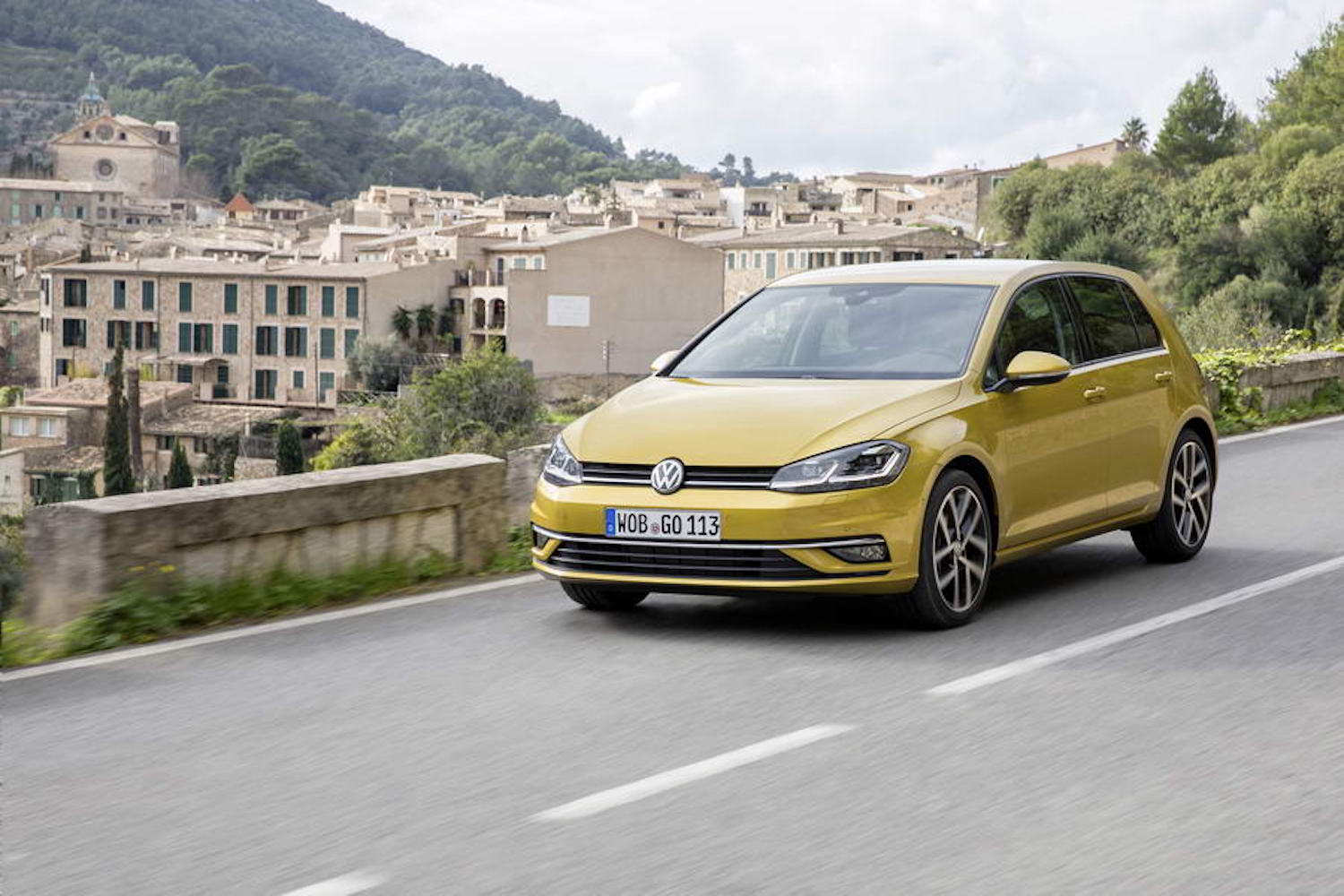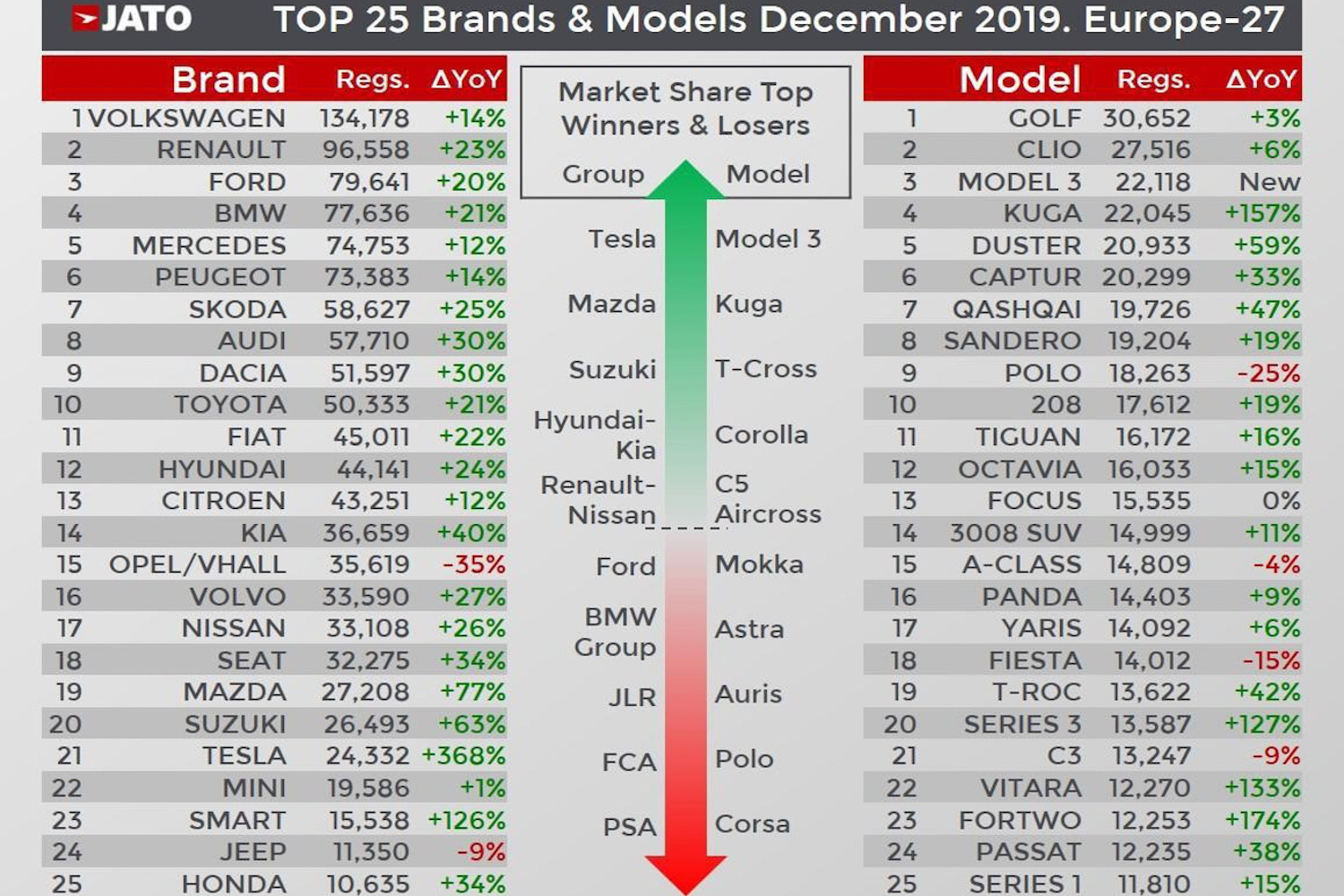Car registrations across Europe rose dramatically in December, as sales across the continent increased by 21 per cent compared with the same month in 2018. A sign of a recovering car market? Sadly not. In noting that similar increases were seen in the month before the introduction of the WLTP economy regulations, car market analyst JATO Dynamics reckons similar things are at play here, and car makers are actually rushing to pre-register models that will be harder to sell under the new regulatory environment.
New emissions regulations driving pre-registering
New EU emissions regulations, which mean that car makers must score an average of 95g/km across their model lineups, came into force on the 1st of January, and the rise in December sales was, in large part, an attempt to clear house (or more accurately forecourts) before the emissions axe fell.
"The spike in registrations may initially look like good news, but JATO's latest data tells a different story as emission levels have not improved for the big five markets. In fact, their volume-weighted average CO2 emissions through October 2019 totalled 122.5 g/km, which is 1.2 g/km higher than the result for the whole of 2018. The December registrations are an indication of the ongoing regulatory challenges facing car makers in the year ahead," commented Felipe Munoz, JATO's global analyst.
"The growth is most likely due to self-registrations from those hoping to resell the units as second hand in 2020. For example, in Spain, where total registrations increased by six per cent, the business registrations increased by 23 per cent while private ones fell by seven per cent. In Finland, the former volume increased by 40 per cent while the latter recorded only three per cent growth."
Volkswagen tops the sales charts
Volkswagen topped the sales charts in December, and the Golf - in spite of it being on run-out ahead of the arrival of the new Golf 8 - was the best-selling car. Renault came in second place in the overall brand sales, followed by Ford, BMW, and Mercedes. Behind the Golf, the Clio was the second-best selling car, and it was followed by a dramatic entry for third place - the appropriately-named Tesla Model 3.
The Tesla's success is part of an overall increase in demand for electric cars, as battery vehicles saw their demand increase by 69 per cent compared with the same month in 2018. In fact, 132,000 vehicles sold in December were electric, meaning that battery cars now account for 11 per cent of the European car market (with diesel on 30 per cent and petrol on 58 per cent). The Model 3 was the best-selling electric car in December (22,100 sales), followed by the Renault Zoe, Audi e-Tron, VW e-Golf, and BMW i3. Their volume, though, was much lower - the Zoe, for example, only needed to post 4,800 sales to take second place behind the Tesla.
EVs outsell hybrids for the first time
It was also a significant month for electric cars in that, for the first time, they out-sold hybrid models (of which the Toyota Corolla, with 7,300 sales in December, was the best-performing). EVs are closing the gap at an impressive rate when compared to their diesel counterparts. In December 2018, there were 4.6 diesel cars for every EV sold; a year later the ratio has fallen significantly to 2.9.
"As expected, Tesla continues to have an enormous impact on registrations at the end of each quarter and the Model 3 has put sedans back in the spotlight. The question is whether this trend is sustainable, or will electric SUVs hinder the popularity of Tesla Model 3 in the coming months?" said Munoz.
Other big successes in December went to the Ford Kuga (again, another model on run-out but it saw a 172 per cent increase in sales, and took fourth place in the sale charts); the BMW 3 Series (sales up by 127 per cent); Suzuki Vitara (up by 133 per cent); and the Smart ForTwo (up by 174 per cent).
SUVs are now, by some margin, the most popular models on sale, accounting for 42 per cent of total sales, with 524,500 sold in December. That success is a double-edged sword for car makers though - SUVs continue to be the main driver of growth in Europe but they represent a high contribution to CO2 emissions and risk of potential fines.


